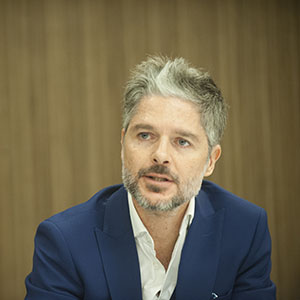Putting an End to Open Defecation
The power of our experience in Burkina Faso
The Burkinabe province of Sissili has succeeded in eradicating open defecation. The implementation of the CLTS method, based on convincing communities to abandon this unhealthy and degrading practice, allows their direct participation in the development of solutions. The method has brought about a radical change to the approach to humanitarian aid. Our collaboration with UNICEF has established the guidelines to be followed in the future by the Burkinabe government to rid the rest of the country of a terrible health scourge that hampers human and economic development.
Putting a stop to open defecation is the world’s biggest hygiene challenge. The lack of any kind of sanitation facility forces 500 million people to defecate in fields, forests, water bodies, beaches, or other spaces such as streets and open sewers. In 2020, nine out of ten of these people lived in Central and South Asia (233 million) and sub-Saharan Africa (197 million). Although these numbers have decreased in the last few years (it reached 738 million in 2015), progress is still slow towards the total eradication of this scourge by 2030.
Open defecation contaminates drinking water sources and spreads diseases like cholera, diarrhea and dysentery. According to WHO estimates, in 2019, inadequate sanitation caused 432,000 diarrheal deaths per year, and children under the age of five suffered the most.
Historically, efforts to eradicate this scourge focused on obtaining financial aid to build latrines and sanitation facilities in the most disadvantaged areas. This aid was often ineffective because it imposed the vision on hygiene of the economically solid societies and often failed as it did not consider the cultural peculiarities, hygiene knowledge, and technical skills of communities.
At the We Are Water Foundation, we have seen this complexity and the direct relationship between the lack of sanitation and poverty during the more than 11 years we have spent developing sanitation projects in countries such as Indonesia, Madagascar, Guinea-Bissau, Ghana, India, and the Democratic Republic of Congo.

The CLTS method is based on the participation of the community to resolve the problem of open defecation. Photo © Carlos Garriga
Achieving the acceptance of the community
In 2017, together with UNICEF, we started one of our most specific actions to fight open defecation in Burkina Faso, one of the poorest countries in Africa and one of the most affected by the lack of sanitation. We applied the Community-Led Total Sanitation (CLTS) approach, which UNICEF had been applying since its intervention in Haiti after Hurricane Matthew in 2016. This approach was born as a response to decades of failures to address the lack of access to water and sanitation, which were based on the assumption that these problems could be solved simply by installing infrastructures (latrines, water, systems, etc.) along with a training program by nonlocal experts.
The CLTS approach is based on inviting community members to recognize the fecal waste that accumulates in the dirtiest areas of their neighborhood and analyze its harmful hygienic consequences. Aid project facilitators do not use euphemisms in this awareness-raising work; they call the waste “poop” or “shit” and point out the harmfulness of this scourge that kills their children and limits their possibilities for economic and social growth.
This is the first step in a new way of implementing latrine construction plans. In these cases, the facilitators’ goal is to push the community towards learning and making decisions about the location, construction, and maintenance of facilities.
2021: Sissili, free of open defecation
This collaboration with UNICEF succeeded in eradicating open defecation in the Sissili province, with 337,000 inhabitants, in March last year. Our Manual for the construction of latrines and wells, a document that compiles the experience gained when developing and visiting our sanitation projects all around the world, established the fundamental groundwork that contributed to the effective implementation of the facilities and guaranteed their sustainability.

Small shops have been set up for the sale of basic items for latrine construction. Photo © Quim Roser
The success of the project has led the Burkina Faso Ministry of Water and Sanitation and the Ministry of Health to consider working closely with the Foundation to extend this working method to the entire country with the aim of making Burkina Faso open defecation free by 2030.
Dignity and justice, beyond hygiene
The eradication of open defecation has little-known benefits among the public in the economically prosperous world. In addition to being key to achieving the first three SDGs —ending poverty, hunger, and achieving health—it has a particular incidence on SDG 4, which aims for quality education, and SDG 5, which addresses gender equality. Women and girls bear the brunt of the consequences of the lack of safe latrines, as their safety and dignity are compromised. Many are assaulted while relieving themselves. Fear and shame are often enough to keep them out of school or hold back the need to urinate or defecate, causing multiple bowel and urinary tract diseases.
Our experience in Burkina Faso provides a roadmap for the dream of making the eradication of open defecation, an essential foundation of any hygiene program, a global one. It can be done, and we must do it.
Main photo: The collaboration between the We are Water Foundation and UNICEF established the guidelines for the Burkina Faso government to construct latrines and wells throughout the country. Photo © Carlos Garriga
The We Are Water Foundation, initiated by Roca, is committed to taking actions towards improving the world's water crisis: influencing public opinion in order to promote a new water culture, increasing knowledge of sustainable water management and engaging in projects to alleviate the negative effects of the lack of water and sanitation in the most affected areas of the planet.
